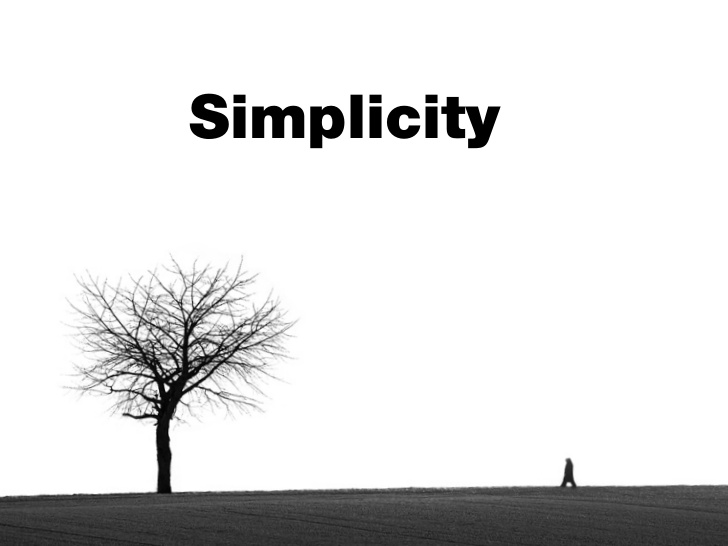Here’s one potential reality: everyone running around talking about how busy they always are might someday lead to a focus on Essentialism (whereby people instead focus on what matters, as opposed to always talking about how busy they are). That might happen. It might not. It’s probably more of an individual thing — i.e. it varies by person — than anything else.
Here’s an idea at a more organizational level that’s similar, though: what if businesses made “simplicity” a strategic pillar? Sounds a bit like a buzzword, but … maybe it’s doable.
Here’s an interview with a semi-high ranking guy at Wells Fargo:
Simplicity is a big new strategic pillar for Wells Fargo and a personal passion of mine. If I could recommend one thing to build a strategy around, it would be that. Recently I gathered an internal team as well as an agency that I’ve worked with for many years, Humantific, to synthesize nearly 30 years of literature on simplicity, going back to Richard Saul Wurman’s Information Anxiety, written in the late 80s, right up the present with Alan Siegel (and Siegel + Gale’s) great work. I am really passionate about simplicity as a central, underlying pillar of any customer experience strategy.
Here’s a buzzword alert about what’s coming up, then we’ll discuss the underlying principles. Here’s what the same guy says about the “core tenets” of bringing simplicity into your business:
- Embrace simplicity
- Commit to the essentials
- Start by examining complexity
- Adjust for the situation
- Make sure it works
- Tell a story
- Speak human
If someone told me to “speak human” in a presentation, I’d probably smack them clear across their mouth. WTH?
Anyway.
This is a semi-major shift here, right?
Most businesses function this way: “OMG OMG We’re So Busy And We Operate In Such A Complex And Oft-Changing Business Environment OMG OMG Everything Is Essentially A Challenge And So Complicated And Details Are Everything.”
Part of that is justification — work has actually gotten easier (see: technology) but we need it to still be “virtuous” so we pretend it’s harder — but part of it is truly more complex. (Global environments, etc.)
Thing is, simplicity is really important. Some of the most successful companies in the world got that way because of simple design of their products. Others got that way because of simple messaging. Others got that way because of simple listening. You can get that way because of simple storytelling.
Here’s the point: your life can feel out of control, and it can feel like your deliverables are piling up, and all that … but in reality, oftentimes a return to simplicity can make things all the better — and positively impact the bottom line at the same time.


Reblogged this on Gr8fullsoul.